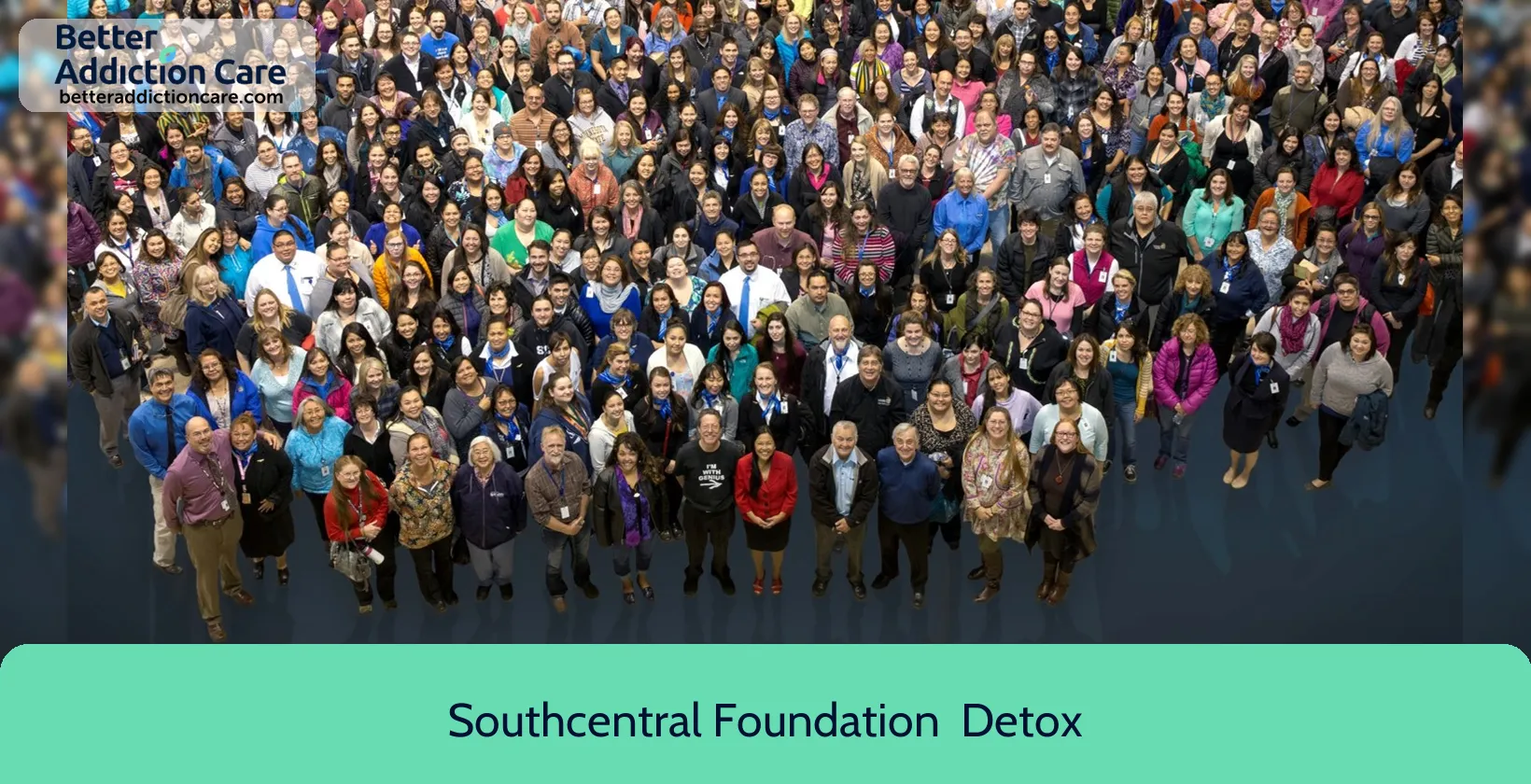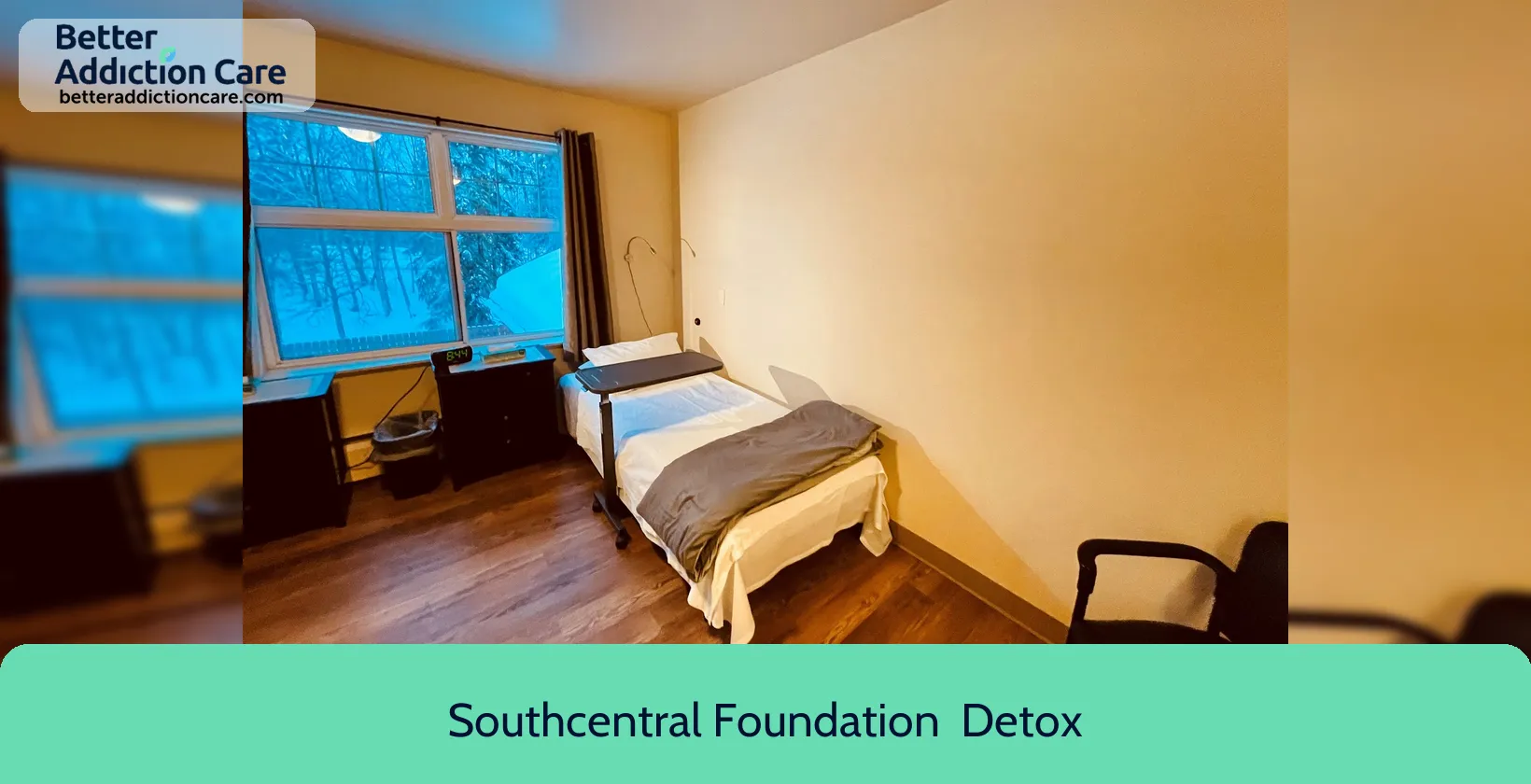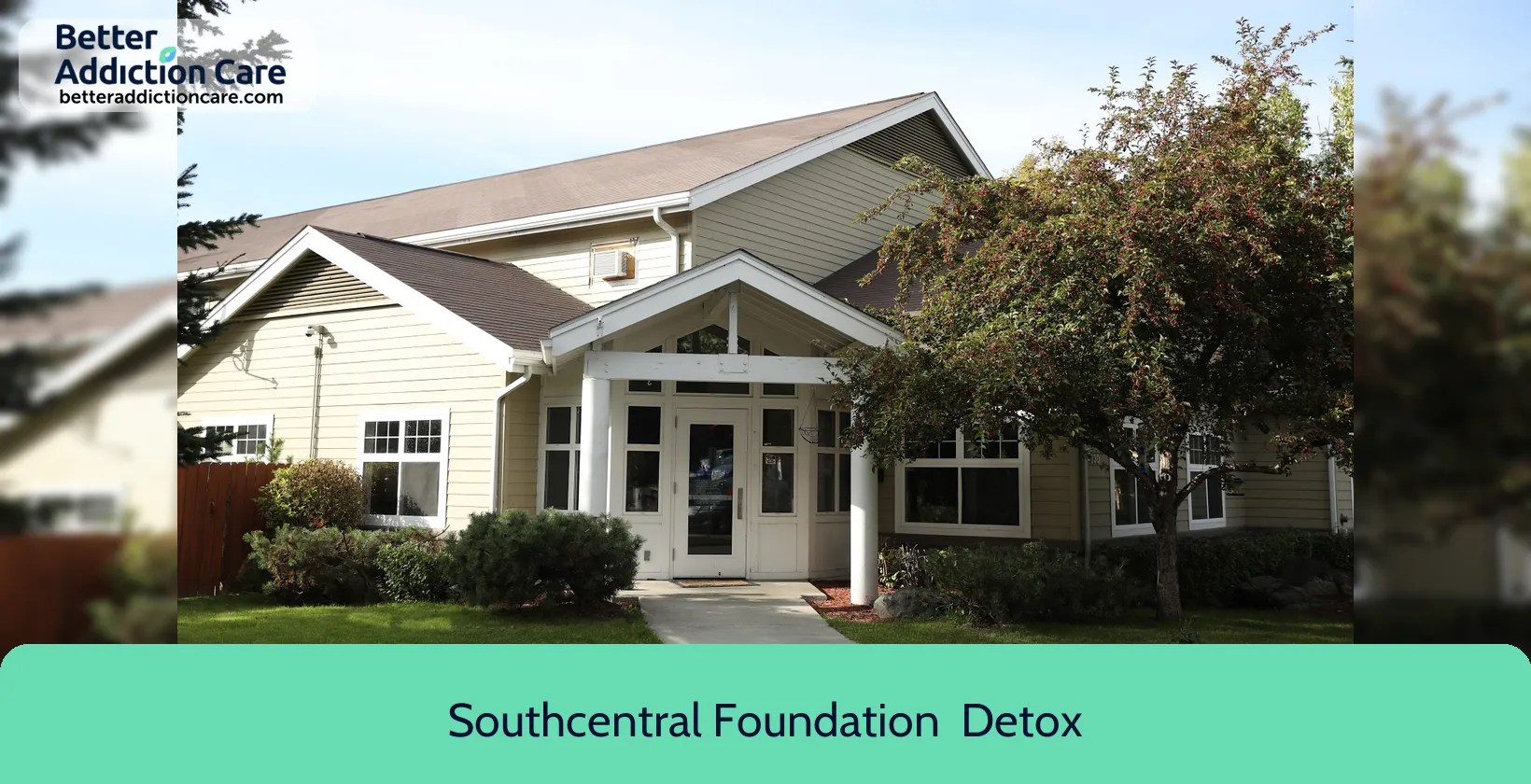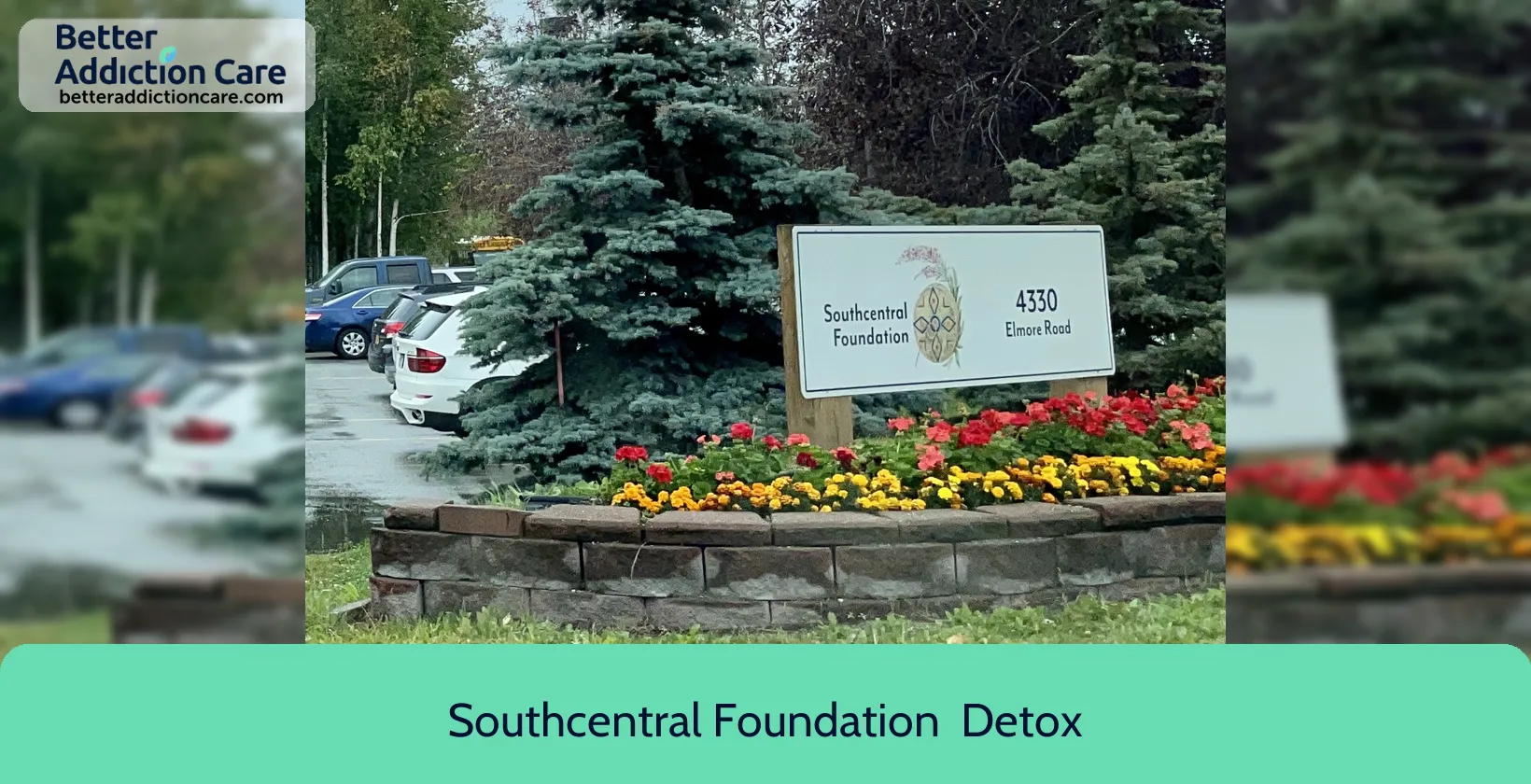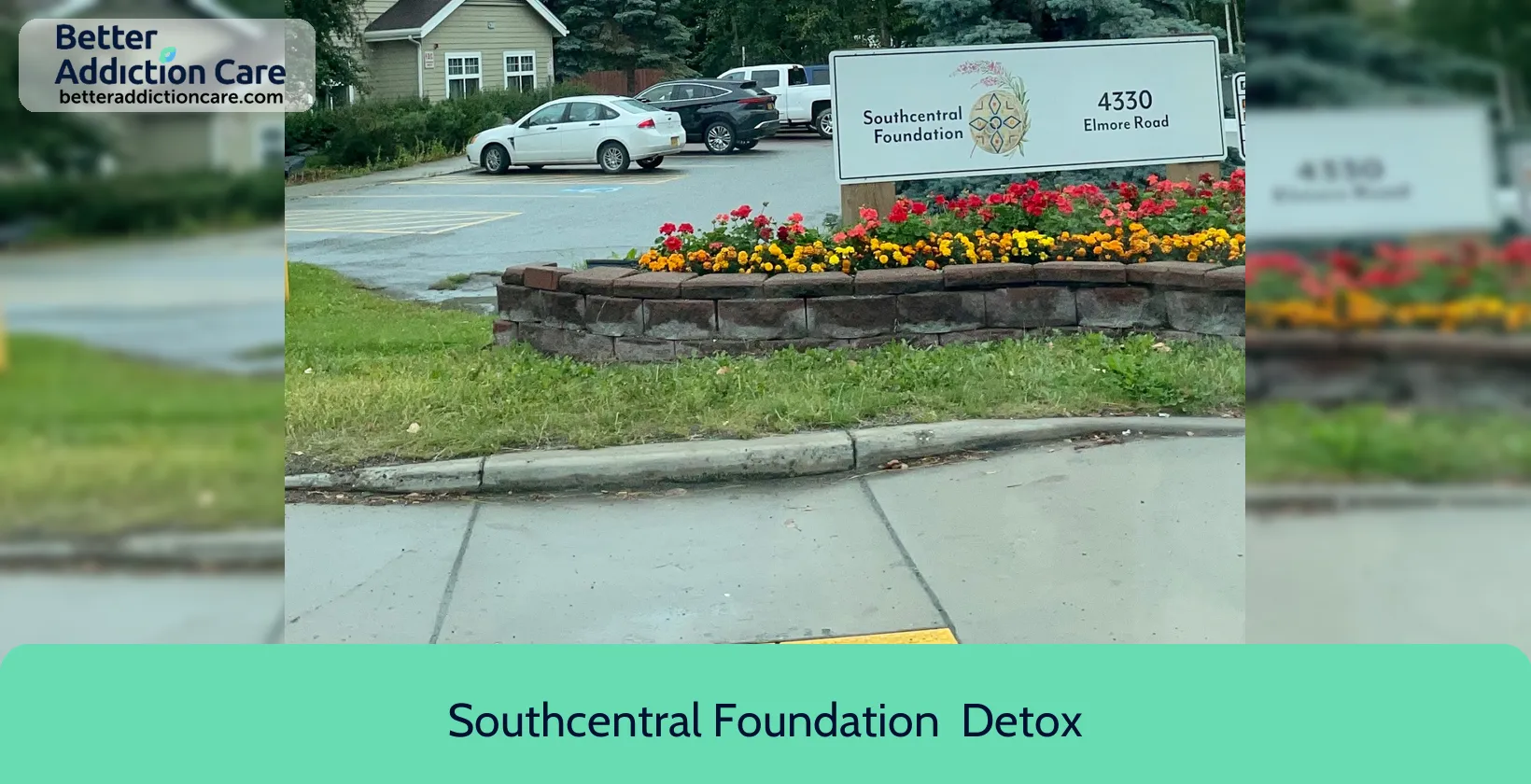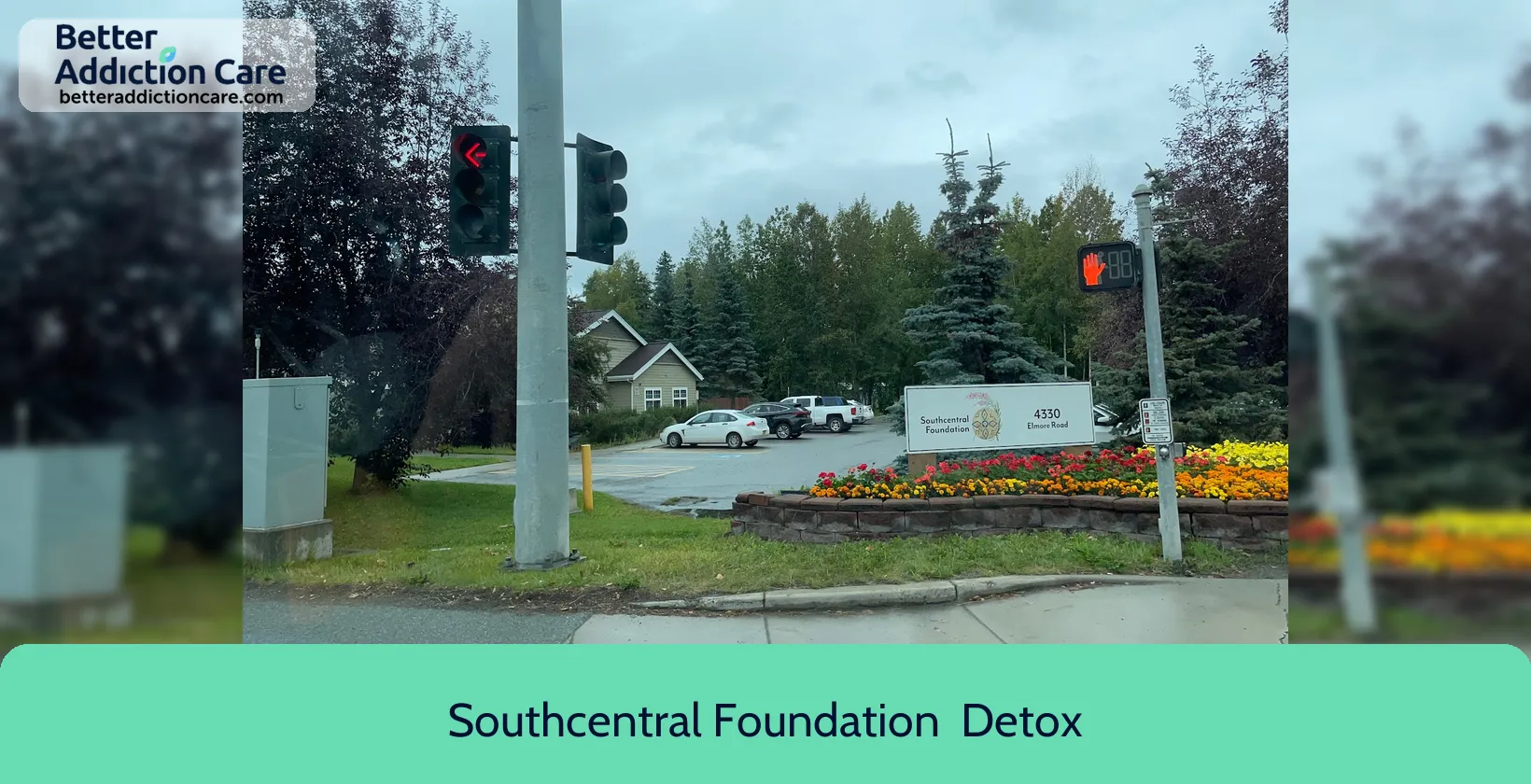Southcentral Foundation - Detox
Overview
Southcentral Foundation - Detox is a substance abuse treatment center for people seeking treatment near Anchorage County. As part of their treatment modalities for recovery, Southcentral Foundation - Detox provides cognitive behavioral therapy, substance use disorder counseling, and trauma-related counseling during treatment. Southcentral Foundation - Detox is located in Anchorage, Alaska, accepting cash or self-payment for treatment.
Southcentral Foundation - Detox at a Glance
Payment Options
- Cash or self-payment
- Medicaid
- Medicare
- State-financed health insurance plan other than Medicaid
- Private health insurance
Assessments
- Screening for tobacco use
- Screening for mental disorders
- Screening for substance use
- Complete medical history/physical exam
- Comprehensive mental health assessment
Age Groups
- Young adults
- Adults
Ancillary Services
- Case management service
- Suicide prevention services
- Mental health services
- Transportation assistance
Highlights About Southcentral Foundation - Detox
7.27/10
With an overall rating of 7.27/10, this facility has following balanced range of services. Alcohol Rehabilitation: 8.00/10, Drug Rehab and Detox: 7.85/10, Insurance and Payments: 6.00/10, Treatment Options: 7.21/10.-
Alcohol Rehabilitation 8.00
-
Drug Rehab and Detox 7.85
-
Treatment Options 7.21
-
Insurance and Payments 6.00
Accreditations
State mental health department:
State mental health department accreditation refers to the process of evaluating and certifying the quality and standards of a state's mental health department, ensuring that it provides high-quality services and meets specific criteria for mental health care. The accreditation process is performed by a third-party organization and helps to improve the overall care and treatment of individuals with mental health conditions.
State department of health:

Government agencies issue State Licenses, granting permission to rehabilitation organizations to conduct their business operations lawfully within specific geographic regions. Generally, the particular rehabilitation programs offered by a facility and its physical location dictate the necessary licenses needed for legal operation.
Hospital licensing authority:
The Hospital Licensing Authority is responsible for granting licenses to healthcare facilities, ensuring that they meet the standards and regulations set by the government. Accreditation is a process of evaluation and recognition by a third-party organization, confirming that the hospital meets specific quality and safety standards.
Commission on Accreditation of Rehabilitation Facilities (CARF):

CARF accreditation is a prestigious recognition granted to rehabilitation and human service organizations. It signifies that an organization meets high-quality standards, having undergone a rigorous evaluation process. CARF accreditation boosts an organization's credibility and ensures top-notch care for individuals with disabilities, injuries, or healthcare needs.
Federally Qualified Health Center:
Federally Qualified Health Center (FQHC) accreditation is a process of evaluation and recognition by the federal government for community health centers that provide comprehensive and accessible healthcare services to underserved populations. FQHC accreditation is essential for centers to receive federal funding and to ensure that they meet standards for quality, patient-centered care.
Treatment At Southcentral Foundation - Detox
Treatment Conditions
- Alcoholism
- Mental health treatment
- Substance use treatment
- Co-occurring Disorders
Care Levels
- Hospital inpatient/24-hour hospital inpatient
- Hospital inpatient treatment
- Residential detoxification
- Hospital inpatient detoxification
Treatment Modalities
- Cognitive behavioral therapy
- Substance use disorder counseling
- Trauma-related counseling
- Smoking/vaping/tobacco cessation counseling
- Group counseling
Ancillary Services
Additional Services
- Pharmacotherapies administered during treatment
- Housing services
- Breathalyzer or blood alcohol testing
Special Programs
- Clients who have experienced trauma
Common Questions About Southcentral Foundation - Detox
Contact Information
Read our Most Recent Article About Drug Addiction
DISCLAIMER: The facility name, logo and brand are the property and registered trademarks of Southcentral Foundation - Detox, and are being used for identification and informational purposes only. Use of these names, logos and brands shall not imply endorsement. BetterAddictionCare.com is not affiliated with or sponsored by Southcentral Foundation - Detox.
